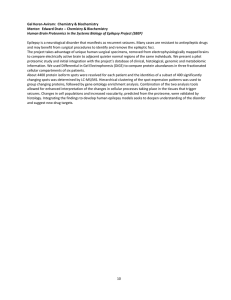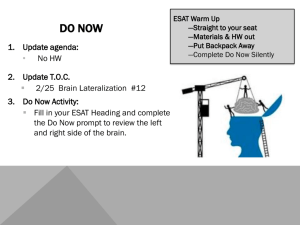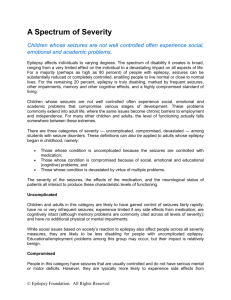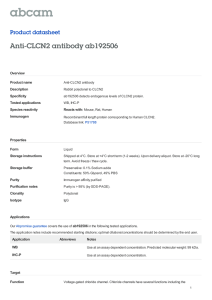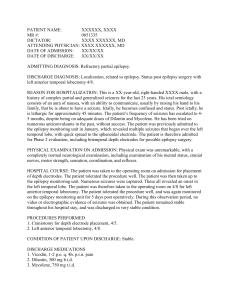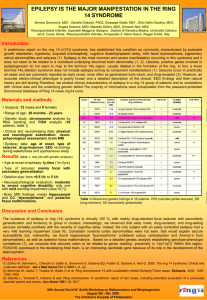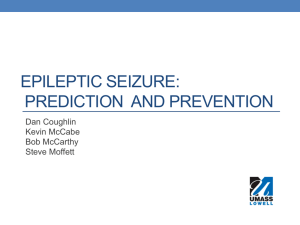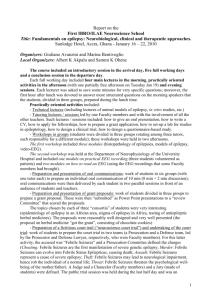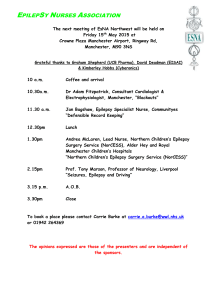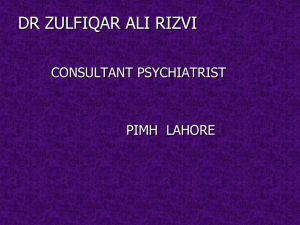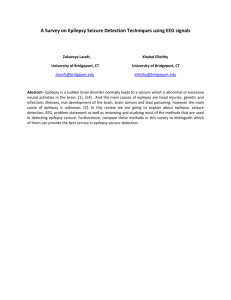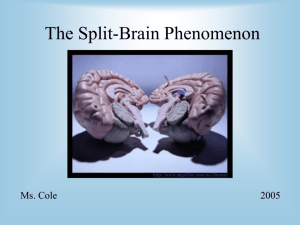Children with epilepsy
advertisement
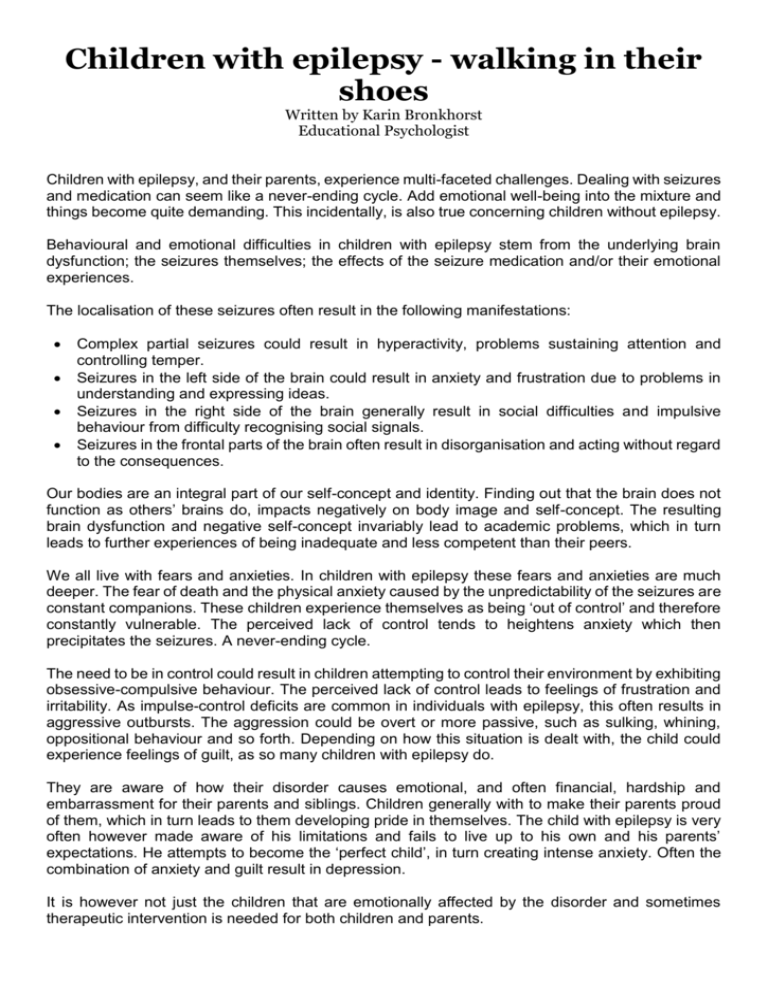
Children with epilepsy - walking in their shoes Written by Karin Bronkhorst Educational Psychologist Children with epilepsy, and their parents, experience multi-faceted challenges. Dealing with seizures and medication can seem like a never-ending cycle. Add emotional well-being into the mixture and things become quite demanding. This incidentally, is also true concerning children without epilepsy. Behavioural and emotional difficulties in children with epilepsy stem from the underlying brain dysfunction; the seizures themselves; the effects of the seizure medication and/or their emotional experiences. The localisation of these seizures often result in the following manifestations: Complex partial seizures could result in hyperactivity, problems sustaining attention and controlling temper. Seizures in the left side of the brain could result in anxiety and frustration due to problems in understanding and expressing ideas. Seizures in the right side of the brain generally result in social difficulties and impulsive behaviour from difficulty recognising social signals. Seizures in the frontal parts of the brain often result in disorganisation and acting without regard to the consequences. Our bodies are an integral part of our self-concept and identity. Finding out that the brain does not function as others’ brains do, impacts negatively on body image and self-concept. The resulting brain dysfunction and negative self-concept invariably lead to academic problems, which in turn leads to further experiences of being inadequate and less competent than their peers. We all live with fears and anxieties. In children with epilepsy these fears and anxieties are much deeper. The fear of death and the physical anxiety caused by the unpredictability of the seizures are constant companions. These children experience themselves as being ‘out of control’ and therefore constantly vulnerable. The perceived lack of control tends to heightens anxiety which then precipitates the seizures. A never-ending cycle. The need to be in control could result in children attempting to control their environment by exhibiting obsessive-compulsive behaviour. The perceived lack of control leads to feelings of frustration and irritability. As impulse-control deficits are common in individuals with epilepsy, this often results in aggressive outbursts. The aggression could be overt or more passive, such as sulking, whining, oppositional behaviour and so forth. Depending on how this situation is dealt with, the child could experience feelings of guilt, as so many children with epilepsy do. They are aware of how their disorder causes emotional, and often financial, hardship and embarrassment for their parents and siblings. Children generally with to make their parents proud of them, which in turn leads to them developing pride in themselves. The child with epilepsy is very often however made aware of his limitations and fails to live up to his own and his parents’ expectations. He attempts to become the ‘perfect child’, in turn creating intense anxiety. Often the combination of anxiety and guilt result in depression. It is however not just the children that are emotionally affected by the disorder and sometimes therapeutic intervention is needed for both children and parents. Initially parents tend to feel shocked and overwhelmed by the diagnosis. This stage is generally followed by feelings of guilt and/or anger. A sense of desperation becomes evident as parents attempt to come to grips with the implications. As they do this, many parents also have to grieve what they perceive to be the ‘ideal child’. Finally parents either accept their situation or become depressed. These are all natural responses that could affect parenting skills. It is a difficult for any parent to balance safety and risk for their growing child. When parents become overprotective of their child with epilepsy, it results in a lack of exploration (experiencing that which is new and learning from the resulting challenges) and ultimately stunts their individualisation. When children fail to risk, they feel incompetent and lack assertiveness. This makes them more vulnerable to being bullied and teased by their peers. The child then identifies with the label ‘epileptic’ and believes there is ‘something wrong with him’ as a person. They tend to focus on their perceived limitations and rarely experience or acknowledge their achievements. Children are sensitive and could become aware that their parents are feeling ‘sorry’ for them – the ideal tool for manipulation in any situation! It is imperative that parents discipline their child – and not the epilepsy. Parents sometimes fear if they stress the child by scolding him too much, the child will have a seizure. Non-effective discipline structures can cause over-dependence or rebelliousness on the long-term. Do not let the fear of seizures change your discipline! Boundaries create security for all children and security implies safety – something these children are in desperate need of. Security, support, understanding and open communication channels provide children with epilepsy with the fertile grounds to thrive. It creates the strength to deal with the stigma associated with the label ‘epileptic’ and society’s general lack of understanding with regards to this condition. Empowering children to become all that they could be and to make their own footprints on this earth. Anxiety manifestations · Irritability · Depression manifestations Sadness and repressed anger · Irrational anger · Loss of interest in activities · Generalised and excessive worrying· Loss of motivation and confidence · Uncontrolled mood swings · Poor concentration and memory · Low frustration tolerance · Relationship problems · Sleep disturbances and less energy · Recurrent thoughts of death
